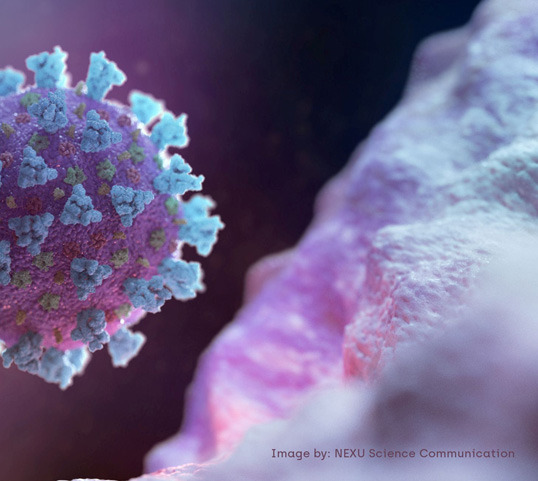Professor Lledo, head of the Perception & Memory Unit at the Institut Pasteur in Paris, reports on the discovery of the mechanisms of short and long term anosmia linked to Covid-19
Exclusively
COVID-19, caused by the SARS-CoV-2 virus, as we know, is primarily a respiratory disease but many patients have extra-respiratory symptoms. Among these, a sudden loss of olfaction in people infected with SARS-CoV-2 has been reported worldwide since the beginning of the pandemic. The direct role of the virus in anosmia has remained unclear until now, but in a new study, researchers from the Institut Pasteur, CNRS, Inserm, University of Paris, and AP-HP have elucidated the mechanisms involved in the anosmia related to COVID-19.
The study, conducted in patients with COVID-19, unexpectedly shows that classical RT-qPCR tests performed on nasopharyngeal swabs can be negative even though the virus still persists deep in the nasal cavity, in the olfactory epithelium.
Thus, 4 key facts of this study were highlighted:
- Nasal brushing reveals the presence of the virus when swabbing does not,
- SARS-CoV-2 can persist in the olfactory epithelium for several months,
- SARS-CoV-2 infects sensory neurons and causes recruitment of immune cells to the olfactory sensory organ,
- SARS-CoV-2 can cause persistent inflammation of the olfactory epithelium and the olfactory nervous system.

The discovery of the association between long-lasting loss of olfactory function and the presence of recurrent viral infection invites clinicians to modify the management of long COVID-19 patients.
Article taken from the study “COVID-19-associated olfactory dysfunction reveals neuroinvasion and persistence of SARS-CoV-2 in the olfactory system, Science Translational Medicine, 3 May 2021” authored by Guilherme Dias de Melo, Françoise Lazarini, Sylvain Levallois Charlotte Hautefort, Vincent Michel, Florence Larrous, Benjamin Verillaud, Caroline Aparicio, Sebastien Wagner, Gilles Gheusi, Lauriane Kergoat, Etienne Kornobis, Flora Donati, Thomas Cokelaer, Rémi Hervochon, Yoann Madec, Emmanuel Roze, Dominique Salmon, Hervé Bourhy, Marc Lecuit, Pierre-Marie Lledo.
